May 20, 2023
1.5 Million Downloads
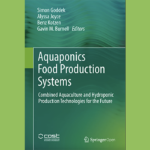
Congratulations to the editors and contributors of the book Aquaponics Food Production Systems: Combined Aquaculture and Hydroponic Production Technologies for the Future.
March 30, 2023
Redefining Climate Research
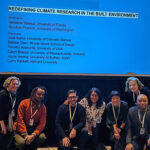
Racism Untaught Workshop
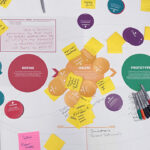
Racism Untaught is focused on cultivating learning environments for people to further explore issues of race and racism, from the obvious to the invisible.
March 20, 2023
PROJECT MJÖLLNIR – VALLE FACULTY GRANT
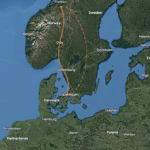
Gundula Proksch received one of the inaugural Valle Faculty Grants, which will fund research travel and talks about CCLS’s research in four cities in Denmark, Sweden, and Norway.
March 14, 2023
Algaetecture Studio Final Review
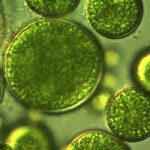
The Arch 507 Exploration Studio, Winter 2023, taught by Professor Gundula Proksch, successfully presented their studio projects on integrating algae cultivation in the built environment.
December 1, 2022
Commercial Rooftop Greenhouses
Book chapter in Urban and Regional Agriculture: Building Resilient Food Systems, edited by Peter Droege, Amsterdam: Elsevier, 2022 Abstract Rooftop greenhouses (RTG) have become an iconic symbol for integrating Controlled Environment Agriculture (CEA) in cities and have greatly inspired urban agriculture advocates, architects, and planners. Despite this positive image, few large RTGs have been built, and…
Urban Integration of Aquaponics
Book chapter in Urban and Regional Agriculture: Building Resilient Food Systems, edited by Peter Droege, Amsterdam: Elsevier, 2022 Abstract Aquaponics is a circular food production system that combines fish and plant cultivation. Its benefits can further the urban agriculture movement through sustainable food production, community support, and education. While the growing system is well understood, its…
October 26, 2022
CCLS PhD Student Erin Horn @ NTNU
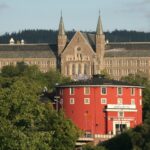
PhD student Erin Horn presented her research with CCLS at the Department of Architecture and Planning at the Norwegian University of Science and Technology (NTNU) in Trondheim.
August 1, 2021
Productive Urban Open Spaces: Water, Energy, and Organic Materials for the Circular City
Forthcoming book chapter in Urban Open Space +: Strategies at the intersection of architecture and open space planning, Jovis The Algae Dome by Space 10 (photographer: Niklas Adrian Vindelev) Abstract The notion of productive urban open spaces in the built environment disciplines has been primarily tied to food production for over a decade. In parallel, environmental…
April 20, 2021
Survey: Innovations in Aquaponics
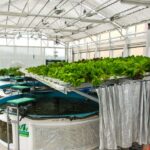
Interested in being a part of our research? The CCLS is looking for practitioners involved in commercial aquaponics or aquaculture farms to participate in interviews.
March 24, 2021
COVID-19 Rapid Response: Design Determinants of Seattle Food Retail Business Continuity
Abstract The current pandemic, with its associated need for physical distancing and the accompanying transformation of the built environment, generates the pressing need for built environment researchers to refocus their research and respond to the current public health crisis. An interdisciplinary team from the College of Built Environments at the University of Washington (UW) with…
October 5, 2020
Site Resource Inventories – a Missing Link in the Circular City’s Information Flow
Abstract A circular city builds upon the principles of circular economy, which key concepts of reduce, reuse, recycle , and recover lead to a coupling of resources: products and by-products of one production process become the input of another one, often in local vicinity. However, sources, types and available quantities of underutilised resources in cities…
October 1, 2020
Sourcing Energy from Waste in the Circular City: Integrated Anaerobic Digestion toward long term Decarbonization
Abstract Energy use within buildings contributes to nearly a third of carbon emissions in the United States (Zhang et al. 2019, EPA). Meanwhile, between 30-40% of food in the U.S. is wasted and generates carbon emissions equivalent to that of 37 million cars yearly (UN FAO). Long term decarbonization strategies within the built environment can…
Adaptive Reuse as Carbon Adaptation: Urban Food Production in the under-used Parking Garages of the Future
Abstract This research collaboration between the Circular City + Living Systems (CCLS) research lab and the architecture practice Weber Thompson addresses the intersection of three critical topics affecting the carbon footprint of the built environment: adaptive reuse of existing buildings, increased availability of electric and autonomous vehicles, and food production in cities. This study measures…
September 30, 2020
CCLS Presents at ’20 AIA/ACSA Conference
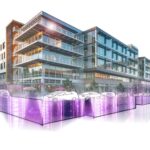
Take a look at what’s next for the CCLS – a presentation on two papers that explore long-term carbon solutions for the built environment.
September 20, 2020
CCLS Receives Future Earth Grant

The CCLS has received a Future Earth PEGASuS 3 ‘Take it further’ Grant.
September 16, 2020
CCLS presents at RAI-RGS Conference

Prof. Proksch and lab member George Lee presented Urban vs. Peri-Urban, a GIS-based mapping investigation of urban agriculture.
September 1, 2020
Seth Connell’s Aquaponics Guide
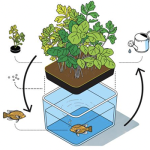
CCLS congratulates Seth Connell on the recent publication of his book, Beginner’s Guide to Aquaponics!
July 10, 2020
GSS Final Presentations

The Global Sustainability Scholars (GSS) scholars come together for a virtual presentation to conclude the second summer of the program.
June 16, 2020
CCLS receives COVID-19 Research Grants

The CCLS and UiL received two Economic Recovery Research grants from the UW Population Health Initiative’s funding program.
June 15, 2020
CCLS Presents at the ACSA 108 Conference
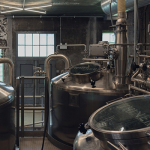
Professor Gundula Proksch and CCLS PhD student Erin Horn presented at the ACSA 108 Virtual Conference held in June 2020.
June 3, 2020
CBE Chronicles #4

The CBE Chronicles, hosted by Alex Barr and Andres Flores, have a conversation with Professor Wittington and Professor Proksch about their developing COVID-19 research.
June 1, 2020
Design for 203X
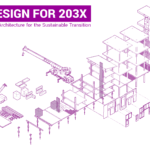
CCLS team member George Lee presents his vision of what residential architecture would look like if sustainability was the primary driver for building.
Liberating Rivers
Niccolò Piacentini, MArch/LArch 2020 Abstract Holistic approaches suggest that a resilient way to manage rivers is by giving them enough room to fulfill their hydrogeomorphological processes. In the Pacific Northwest, a major barrier to the implementation of holistic river management is the agricultural use of floodplains, which is still largely reliant on bank stabilization and…
Re:GEN – An Alternative to Occupying Urban Space
Kelsey A. Crotty, MArch 2020 Abstract Cities are growing at unprecedented rates. Simultaneously, society is beginning to experience physicality through a combined digital and social frame. We currently live within an economic and real estate system whose rigidity makes generating equity, finding quality, affordable space, and fostering community simultaneously difficult. It is apparent that new…
SYM: Ballard Community Hub
SYM is a mixed-use community hub exploring the mutually beneficial relationship between a commercial aquaponic operation, an industrial ceramic workshop, and housing within the Ballard neighborhood of Seattle. The SYM project proposes a synergistic resource flow between these different programmatic elements to create a vibrant, resilient, and productive urban landscape. Centered around a public courtyard,…
Seattle Global Greens
Overlapping culture and use is the central theme of the Seattle Global Greens project, a controlled environment urban agriculture venture in industrial Ballard. With a tiered volume-separated greenhouse, Global Greens creates microclimates suitable for the cultivation of warm-weather produce year-round. A closed loop nutrient and water system will produce various fish, and a pier photovoltaic array…
Gather + Grow
The Gather + Grow project is a mixed-use building campus featuring two residential buildings, a market plaza, and an aquaponic growing operation. The project takes advantage of a unique pocket of breweries in Ballard’s industrial zone to create a synergistic water and energy district. This collection of breweries, the strong industry presence, and Ballard’s active…
Ballard Market Landing
The Ballard Market Landing is a passenger ferry terminal and public market house with integrated aquaponic operation that proposes to expand access to Ballard’s unique shopping and dining districts via Seattle’s waterways. The integrated aquaponic operation with rooftop greenhouse provides fresh produce to the public market house where farmers and artisanal food crafters connect directly…
Agricultural Learning Center
The Agricultural Learning Center promotes public knowledge and community engagement in this unique and little-known food production system. This building program was conceived and spatially organized with the intent of engaging Ballard’s community to Grow, Create, and Engage. Students and visitors witness hands-on the large aquaponic growing system and rooftop gardens as well as chicken…
The (Tree)tment Center
The (Tree)tment Center is a state-of-the-art cancer rehabilitation clinic that explores the potential for therapeutic biophilic design. The (Tree)tment Center integrates an aquaponic growing system to provide a unique and resource-efficient support hub for cancer patients. Connectivity to the aquaponic growing systems and koi ponds is tantamount in the (Tree)tment center, where patients, visitors, and…
May 11, 2020
The CCLS Instagram is Active!

Follow the CCLS on Instagram for updates on our research projects!
The Daily features CCLS Covid Research

Read the article published by the Daily featuring the CCLS’s new COVID-19 research on how local businesses are adapting to the pandemic. Read the article here.
April 29, 2020
CCLS Receives COVID-19 Research Grant
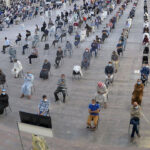
The Urban Infrastructure Lab (UIL) and the Circular City + Living Systems Lab (CCLS) receive one of the 21 COVID-19 Rapid Response grants awarded by the UW Population Health Initiative.
April 10, 2020
CITYFOOD Article Featured in TAD
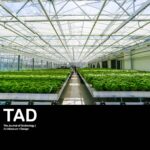
Read CITYFOOD’s article featured in Technology | Architecture and Design’s most recent Spring 2020 publication.
March 30, 2020
Spring ’20 Research Studio + Seminar
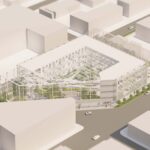
Learn how students explored the intersections between our built environment and food systems through aquaponics.
February 20, 2020
Prof. Proksch Launches CCLS Lab
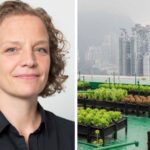
Read about Gundula Proksch’s launch of the research lab and how she sees it as an opportunity for students to engage in urban agriculture.
December 20, 2019
Building an Ecosystem: Integrating Rooftop Aquaponics with a Brewery to Advance the Circular Economy
Conference paper for 108th Annual Meeting of the Association of Collegiate Schools of Architecture, Virtual Conference Figure 5: Aquaponic rooftop greenhouse and brewery systems combined; preliminary interaction diagram. Abstract As cities transform to manage the food-water-energy nexus sustainably, architectural design that is intimately involved with the industrial processes that buildings host can play a crucial role…
CITYFOOD: Research Design for an International, Transdisciplinary Collaboration
Abstract Twenty-first-century cities face challenges including potential food shortages, water scarcity, and dependence on nonrenewable energy sources. These are increasingly intensified by global population growth. The development of innovative solutions for the food-water-energy nexus requires transdisciplinary approaches across scales, boundaries, and sectors. The international, interdisciplinary research consortium CITYFOOD investigates the science and practice of aquaponics,…
December 2, 2019
Integration of Aquaponic Systems in Cities

PhD student Erin Horn was interviewed for the sustainable lifestyle podcast NeuPlanet by Aidan Hersh & Xander Kipp. In this episode, the hosts discuss what urban integration of aquaponics means, as well as exciting new areas for developing research.
October 25, 2019
IGB Tour in Berlin
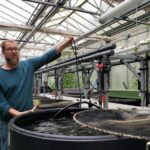
CCLS’s CITYFOOD UW team joined their fellow members of the international CITYFOOD consortium in visiting the aquaculture and aquaponic facilities of the Institute for Freshwater Ecology and Inland Fisheries (IGB) during the second annual CITYFOOD meeting.
ECF Farm Systems Tour
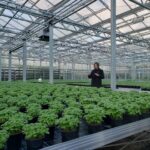
While in Berlin, CCLS connected with ECF Farmsystems, an urban farming company based in the Malzfabrik business incubator in Berlin.
October 24, 2019
CCLS Meets with infarm
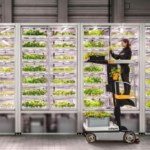
CCLS visited the headquarters of Berlin-based infarm, a rapidly-growing urban farming company with a mission to lay the foundation for a new urban food system.
October 22, 2019
CCLS Tours IGZ Greenhouse
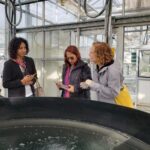
During the second annual CITYFOOD meeting in Berlin, Germany the CCLS team visited greenhouses on the grounds of the Leibniz Institute of Vegetable and Ornamental Crops (IGZ) in Großbeeren.
October 20, 2019
CCLS presents at AE 2019 in Berlin
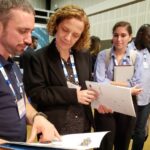
Members of the CCLS team attended the Aquaculture Europe 2019 conference in Berlin, Germany to present three research projects and meet with members of the aquaponic community: Gundula Proksch, Alex Ianchenko, Erin Horn CITYFOOD: ASSESSING AQUAPONICS WITHIN THE URBAN FOOD-WATER ENERGY NEXUS Gundula Proksch, Alex Ianchenko, Erin Horn BUILDING-INTEGRATED AQUAPONICS: ARCHITECTURAL DESIGN CONSIDERATIONS FOR FUTURE…
June 29, 2019
GSS Scholars in Seattle
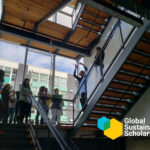
In the summer of 2019, the CCLS hosted GSS students from many higher education institutions.
June 14, 2019
Urban Food Systems: Applying Life Cycle Assessment in Built Environments and Aquaponics
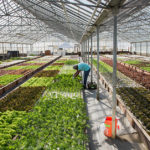
Abstract As the building sector faces global challenges that affect urban supplies of food, water and energy, multifaceted sustainability solutions need to be reexamined through the lens of built environments. Aquaponics, a strategy that combines recirculating aquaculture with hydroponics to optimize fish and plant production, has been recognized as one of “ten technologies which could…
June 5, 2019
Soilcraft: A Necessary Fiction
Stevie Koepp, LArch/MArch 2019 Abstract Soil is an oddly unfamiliar, living matrix supporting the multitude of city life. The World Reference Base for Soils extended classification in 2006 to include urban soil types, termed technosols to describe their semi-synthetic origin. Developing rapidly in biological assemblages qualified by garbage, technosols demand the production of novel narratives…
June 3, 2019
Aquaponics in the Built Environment
Book chapter in Aquaponics Food Production Systems, Springer International Publishing 2019 BIGH Ferme Abattoir, Brussels , 07/05/2018 Credit : Daina Le Lardic / Isopix Abstract Aquaponics’ potential to transform urban food production has been documented in a rapid increase of academic research and public interest in the field. To translate this publicity into real-world impact,…
April 1, 2019
Global Aquaponics Practitioner Survey
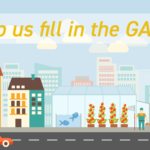
The CCLS has launched their survey out to existing aquaponic farm operations hoping to connect aquaponic farmers, researchers, and decision-makers around the world!
December 9, 2018
Garden City Presentation
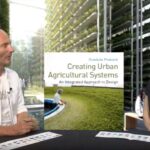
Watch Professor Martin Despang and Professor Gundula Proksch discuss sustainable urban infrastructure with a focus on urban aquaponics in an episode of ThinkTech Hawaii.
May 5, 2018
Terminal Vacancies in the Industrial Void: A Combined District Heating Power Plant and Public Bath in the Port of Tacoma
Conor Irick, MArch 2018 Abstract This thesis contends that industrial infrastructure can transcend its prescribed function as raw utility and offer the extension of a public amenity for the city. The working waterfront is a celebrated ideal by the city of Tacoma, but new development tends to deny an honest depiction of the active industry…
January 2, 2018
Review of Built to Grow: Blending Architecture and Biology
Abstract The emerging discipline of biomimetics converges biology, chemistry, and engineering to offer a scientific approach to bio-inspiration. It develops methodologies for the in-depth analysis of nature to derive technological advances.1 In the field of architecture, biomimetic research primarily has the potential to contribute to the design of innovative building systems and structures, such as efficient…
May 5, 2017
Designing for Disassembly in the Built Environment
Will Wheaton, MArch 2017 Abstract This thesis explores opportunities for extending the life of a building and its components through Design for Disassembly (DfD). Our current way of constructing the built environment is “fixed” and difficult to change. This means that most buildings, once a critical function or building system fails, will be demolished. The…
December 21, 2016
Growing Urbanism: A Manifesto toward an Ecological Urbanism
Article in Blur>d3: dialog International Journal of Architecture and Design Visual Data Overlay: In an interactive, visual overlay the user receives additional information about the surrounding site, shown here while looking at a self-regulating building in downtown Seattle. Abstract Imagine a city of the future where nature has re-emerged into the streets, food grows in…
December 1, 2016
Creating Urban Agricultural Systems: An Integrated Approach to Design
Routledge, 2017 About Creating Urban Agricultural Systems provides you with background, expertise, and inspiration for designing with urban agriculture. It shows you how to grow food in buildings and cities, operate growing systems, and integrate them with natural cycles and existing infrastructures. It teaches you the essential environmental inputs and operational strategies of urban farms,…
May 5, 2016
The Shape of Global Wealth: Slender Towers from New York to Seattle
John Reynders, MArch 2016 Abstract With the financialization of a major segment of the world economy, the built environment has, in turn, experienced a new level of commodification. For the super rich, residential real estate promises strong return on investment, safe sheltering of funds outside the home country, and in most cases, a view. In…
Live | Work | Grow: Integrating Food Production into a Cooperative Housing Project
Steven Jackson, MArch 2016 Abstract With the continued growth of the world’s urban population, the demand for accessible food sources increases significantly. Over half of the global population now lives in urban areas, and projected to increase exponentially. This urban expansion not only increases demand for food production, but also influences rising costs of living…
October 4, 2014
Growing Urbanism: An Evolutionary Urban Ecology in Cascadia
Book chapter in Now Urbanism: The New City is Here, Routledge, 2015 Abstract Imagine a city in which nature and urban form are indistinguishable. Food grows in permaculture gardens where people live and work; tidelands re-emerge in industrial zones, allowing rivers to return to their meandering past; and twentieth-century infrastructure is replaced by biologically engineered…
June 4, 2014
Datascapes: Revealing the Potential of Data to Design Neighborhoods For the Future
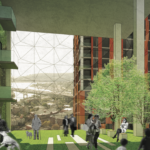
Kristopher Chan, MArch 2014 Abstract Data is everywhere. We are surrounded by a wealth of information collected and stored from every aspect of our daily lives. Information from credit card purchases, cellphone calls, Internet browsing, and many other activities is being collected and stored indefinitely. Much of this data is collected and aggregate totals are…
May 5, 2014
Landscape of Fulfillment: Re-examining Infrastructures for E-Commerce Distribution in Los Angeles
Bennett Sapin, MArch 2014 Abstract The logistical infrastructures supporting the transport and distribution of consumer goods has created a disjuncture in the urban landscape, severing the local space of the city from the space of global product flows. Sprawling agglomerations of mega-warehouses, (such as Amazon “Fulfillment” centers) disregard the local communities that they border, and…
December 4, 2013
Growing Sustainability – Integrating Algae Cultivation into the Built Environment
Abstract Designers are expanding the definition of Sustainable Design by incorporating biological processes and systems directly in their projects. Systems like green roofs and living machines have proved themselves invaluable for reducing a project’s overall environmental footprint. More recently, advanced algae cultivation technologies – some still in the testing phase – inspire architects and designers….
December 1, 2012
The Built Environments Laboratory: An Interdisciplinary Framework for Studio Education in the Planning and Design Disciplines
Journal article in Journal for Education in the Built Environment, 2012 Collective vision of the site, including building prototypes, urban agricultural production, and community engagement developed by a interdisciplinary student group. Abstract Interdisciplinary education is becoming a hallmark strategy for preparing and providing students with the skills necessary for addressing the complexity of our contemporary…
March 1, 2012
Photosynthetic Energy and Ecological Recycling: The Architectural Potential of Algae Cultivation
Conference paper in Digital Aptitudes: Proceedings of the 100th ACSA Annual Meeting, 2012 Algae as wastewater treatment Abstract Designers are expanding the definition of Ecological Design by incorporating biological processes and systems directly in their design. Systems like green roofs and living machines have proved themselves invaluable for reducing a design’s overall environmental footprint. Algae-based…
April 20, 2011
Urban Rooftops as Productive Resources: Rooftop Farming versus Conventional Green Roofs
Conference paper in Considering Research: Proceedings ARCC, 2011 Figure: Green roof and rooftop farm construction types Abstract Rooftops in our urban centers represent a vast potential of currently underused space. The transformation of these urban rooftops into an environmental, ecological resource through an increased implementation of green roof technology is becoming standard practice in many…
March 6, 2011
Urban Water: Re‐Introduction of Sustainable Water Cycles through Urban Agriculture
Conference paper in 99th ACSA Annual Meeting, Montreal, CA, 2011 New York City: Eagle Street Farm Abstract Despite severe catastrophes cased by heat waves, droughts and desertification, global water problems have not yet penetrated into general consciousness. This study looks at the imbalance between the pressures on cities to provide their inhabitants with fresh water…
May 11, 2010
Hybridizing the American ‘Parkway’: The Potential of Urban Agriculture to create more Sustainable Cities
Conference paper in Landscape Legacy: Landscape Architecture Between Art And Science: Proceedings of the 2009-2010 CELA Conference, 2010 Abstract Hybridizing the American “Parkway” demonstrates how existing historic ‘parkways’, a legacy of American Landscape Architecture, can be overlaid with sustainable interactive programs, particularly with regard to urban agriculture, to increase their environmental, social and cultural values….
March 4, 2010
Urban Cultural Greenway – The Potential of Urban Agriculture as Sustainable Urban Infrastructure
Conference paper in REthinking: Proceedings of the 98th ACSA Annual Meeting, 2010 Figure: Park systems in the city of North Vancouver Abstract Presently a large number of green spaces in North American cities show poor ecological performance, offer little cultural value and lack public use. This article examines how the integration of programs related to…
